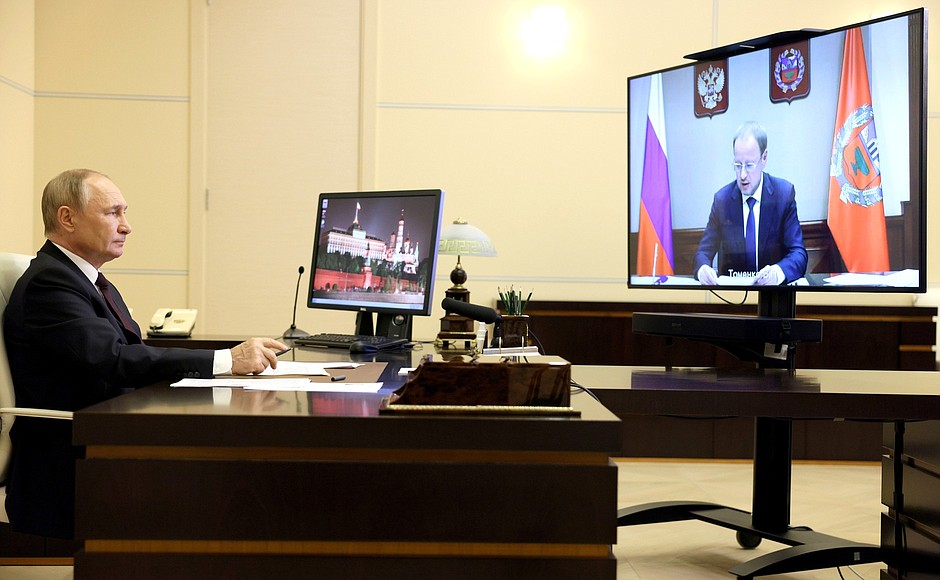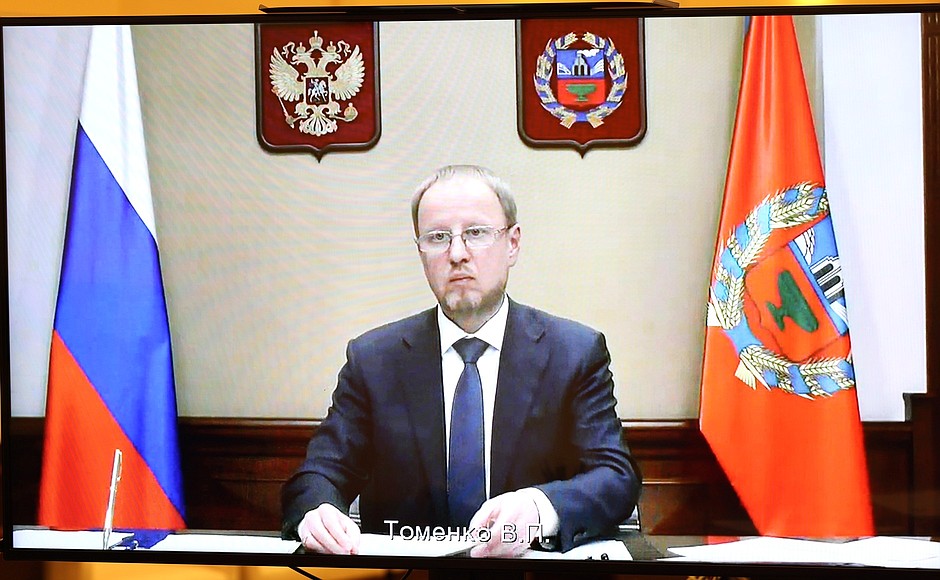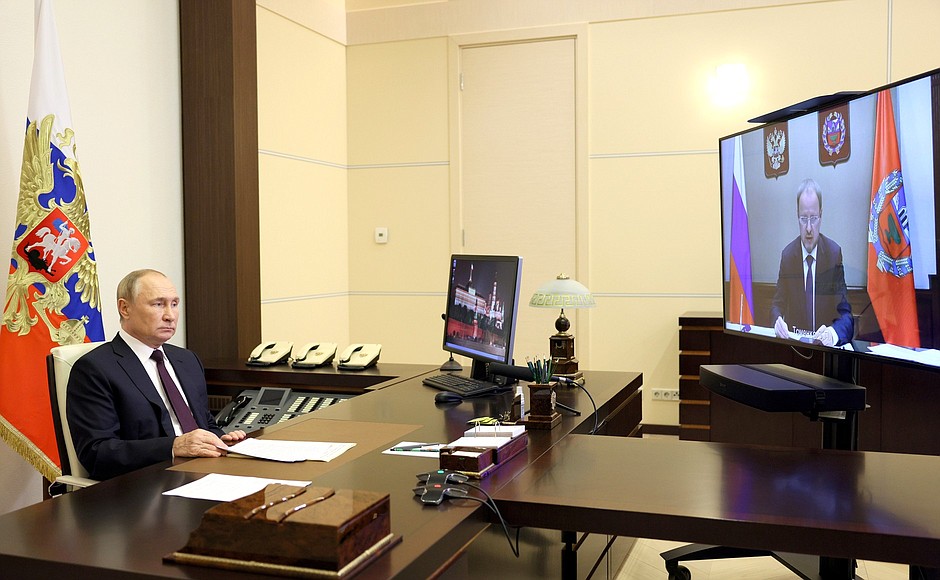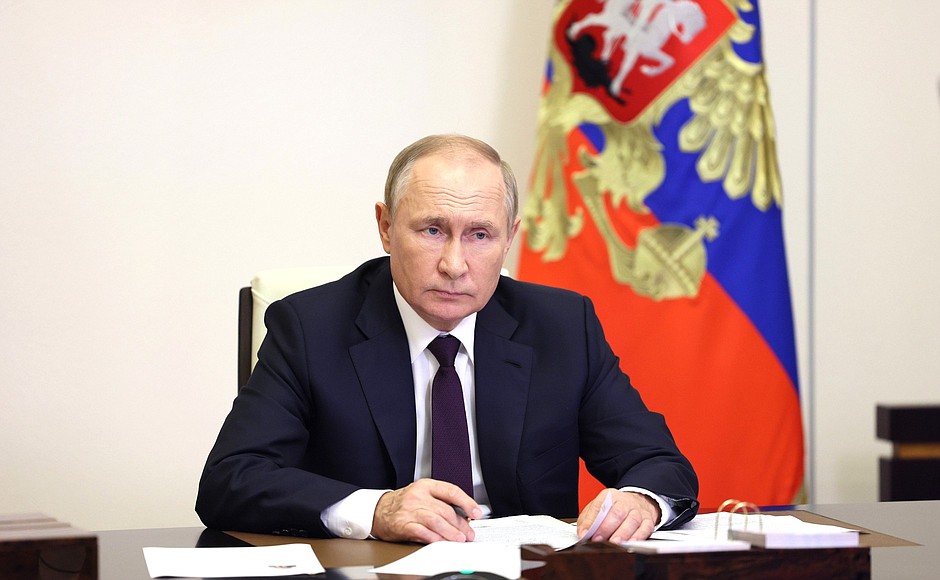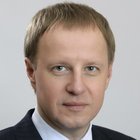The President started by noting that the region was making steady progress and the key indicators, such as the GRP, industrial and agricultural output, were growing, but he highlighted a certain decline in investment in fixed assets. Viktor Tomenko clarified the state of affairs and said the situation was stable as of the meeting, and investment is expected to have grown by 4 to 5 percent by the end of 2022.
According to the Governor, the socioeconomic situation in the Altai Territory is stable. The actions that were taken by the Government under the presidential executive orders early in the year in connection with the restrictive sanctions, as well as the decisions at the regional level, made it possible to keep the situation under control, adjust things where necessary and continue to implement all development projects and programmes.
Governor Tomenko spoke about the good results of the grain and oilseed harvesting campaign. A strong harvest creates good stock to work with for the food and processing industries, which are operating at full capacity. The January-August industrial production index stands at 101.2 percent compared to 2021. The mechanical engineering sector is expanding. Rail car manufacturing increased by 25 percent for the year, manufacturing of motor vehicles, trailers and semi-trailers increased by 17 percent, and that of transformers and electrical equipment by 15 percent.
The conversation also covered tourism and health resort businesses, which are picking up after the challenges of 2020. Tourism is expected to reach about 2 million people as of the end of the year. Many investment projects are being implemented in the tourism sector.
The Governor went on to say that the labour market remained stable and that there was a marked decline in unemployment rates. Registered unemployment stands at just 1 percent of the labour force, while the number of vacancies is more than twice as high. More housing is available, and tax and non-tax revenue grew by 13 percent over the year. All social obligations are being fulfilled in full. The level of participation in federal projects is growing with 49 projects today as compared to 46 projects last year. These projects cover almost all areas, with the most important ones in demography, public health, safe and high-quality roads, housing, and urban environment.
The Altai Territory is working on the tasks assigned to it under presidential instructions and Government resolutions as scheduled. However, the Governor also said there were several issues he wanted to bring to the President’s attention in order to develop and adopt systemic decisions and implement socioeconomic projects that are important for the Altai Territory. One of these issues is related to implementing the Rural Teacher, Rural Doctor, and Rural Paramedic programmes in the region, which need support under the federal targeted investment programme.
The second question had to do with the special settlement pattern in the region and the large number of people who live in small rural areas that are hard to access and where disease incidence rates are slightly above the national average. The Governor noted that these specifics should be taken into account when distributing subventions from the Compulsory Medical Insurance Fund and asked the President to issue a directive so that the guidelines for distributing subventions take these patterns into account when working with regions like the Altai Territory.
Vladimir Putin said he was aware of these issues and promised to issue corresponding instructions to the Government, the Finance Ministry, and the social bloc. At the same time, the President noted that it was necessary to respond to the high case rates by focusing more on public health issues in general, to create proper conditions for physical fitness and, of course, to expand the public healthcare system.
Overall, the President noted that the region was doing well, and thanked the Governor for the good work. In addition, he mentioned the support programmes in the regions targeting military personnel who engage in hard and extremely risky combat work under the special military operation, as well as support programmes for their families, and said they deserve special attention. These matters should be given priority, the President said.
